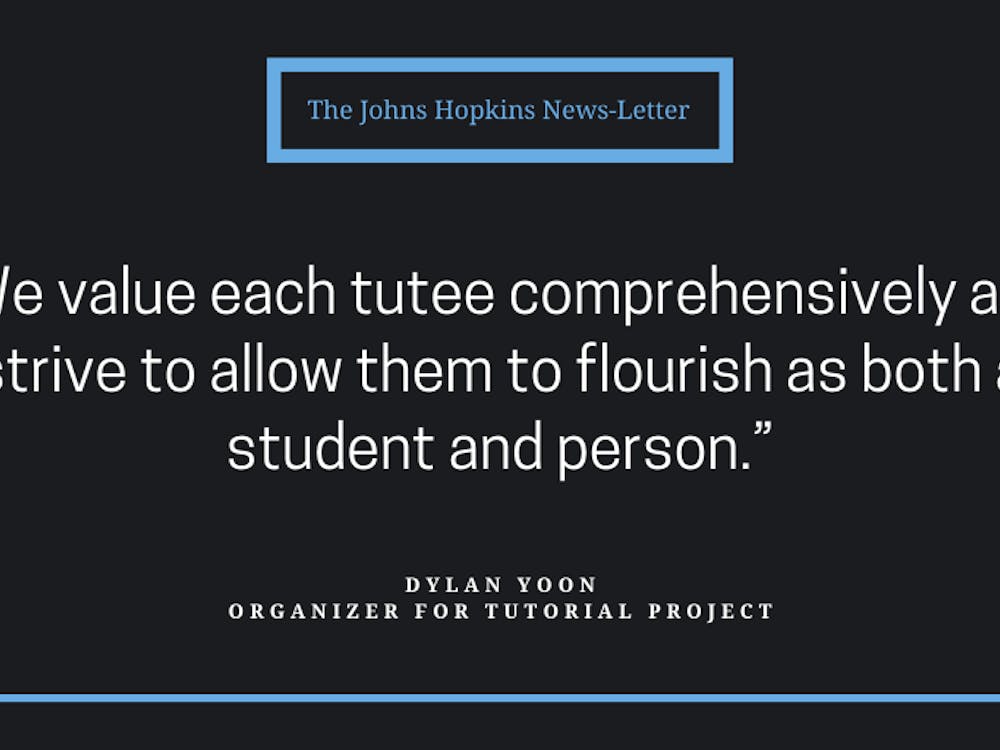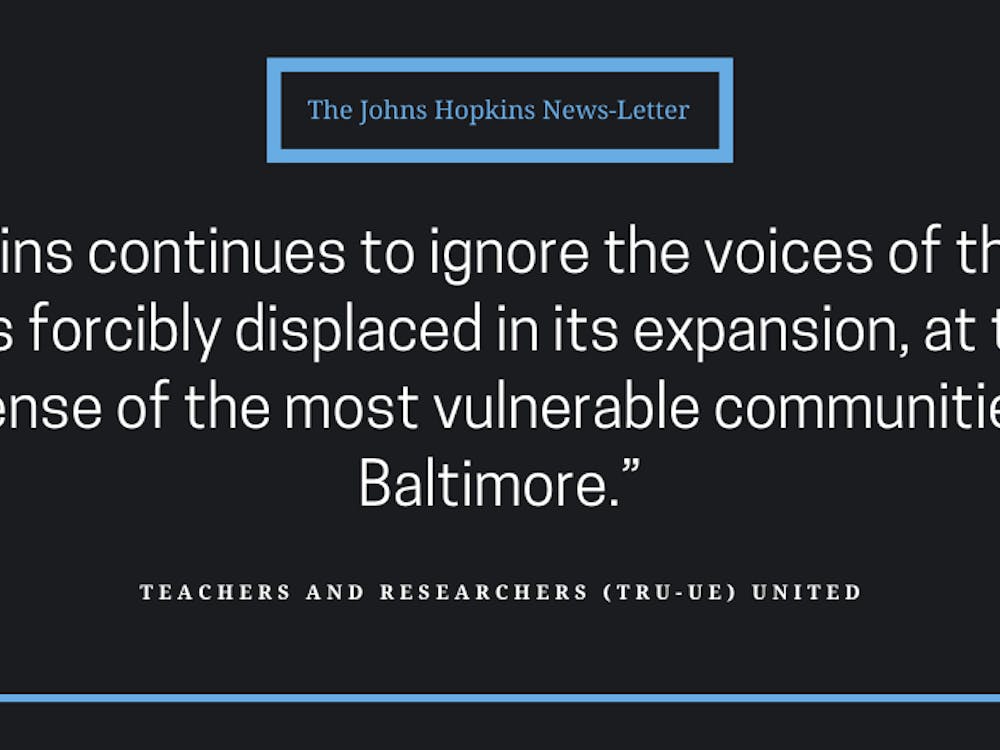The Indigenous Students at Hopkins, a new group under the Office of Multicultural Affairs, hosted “Forgiving Thanksgiving,” a round-table discussion and dinner on Thursday, Nov. 16.
Sophomore Tyra Andrews, who helped organize the event, explained that its purpose was to correct inaccuracies regarding the popular beliefs surrounding the history of Thanksgiving.
Andrews said she wanted to remind people to be mindful of the suffering of indigenous people while they enjoy their holiday meals, and she described what really happened at the “first Thanksgiving” between the Pilgrims and the Native Americans in Plymouth, Mass.
“The natives helped the Pilgrims to survive on the land — they didn’t know how to grow anything, how to hunt things,” Andrews said. “And so, after that, [the Pilgrims] had a huge feast, and they just kind of disregarded the natives.”
Andrews began the event by pointing out that Thanksgiving marked the beginning of the decline of Native Americans in North America.
Andrews, along with freshman Joel Espinoza, also discussed the indigenous view of Thanksgiving. They said that for many Americans, Thanksgiving is viewed as a cheerful celebration of family and friends. However, for many Native Americans, Thanksgiving holds a more somber value.
Andrews also explained how Abraham Lincoln created the traditional Thanksgiving narrative during the Civil War.
“Lincoln at the time wanted to find a way to bring everyone back together, to find peace,” he said. “He came up with this story that the Pilgrims and the natives had come together and found this common ground and had a big meal.”
Andrews said that many Native American narratives differ from Lincoln’s version. Some native accounts even claim that the Pilgrims’ feast celebrated a slaughter of native people in the region.
Espinoza explained the story of Squanto, a character in the traditional historical narrative. He said Squanto could aid the settlers because other Europeans had previously taken him as a captive to Spain. There, he learned their language and ways until he was able to earn his passage back to North America. When the Pilgrims landed in Plymouth Rock, Squanto helped them out of his own generosity.
Members of Indigenous Students at Hopkins were careful to note that they personally valued Thanksgiving and did not seek to alter or remove the holiday.
“I just want to put this out there, this is not an attack on Thanksgiving,” Andrews said. “We’re not saying it’s not great to have family eat together.”
Senior Joshua Bertalotto, the founder of Indigenous Students at Hopkins, agreed with Andrews. He also emphasized that the goal of the event was to inform students, not alter their customs.
“I don’t want people to say that natives don’t like Thanksgiving... that’s not what we’re intending,” he said.
Espinoza also emphasized that he was not seeking to change traditional Thanksgiving practices.
“I don’t think that anyone can say whether someone is celebrating a holiday correctly,” he said.
Typically, many Americans enjoy Thanksgiving meals that include turkey, stuffing, carrots and potatoes. However, Andrews said that the natives and Pilgrims ate different foods at their feast like venison, fish, lobster, berries and squash.
Andrews, Espinoza and Bertalotto agreed that there must be wider acknowledgement of Native-American achievements and contributions to American society.






















Please note All comments are eligible for publication in The News-Letter.